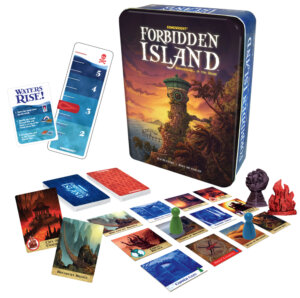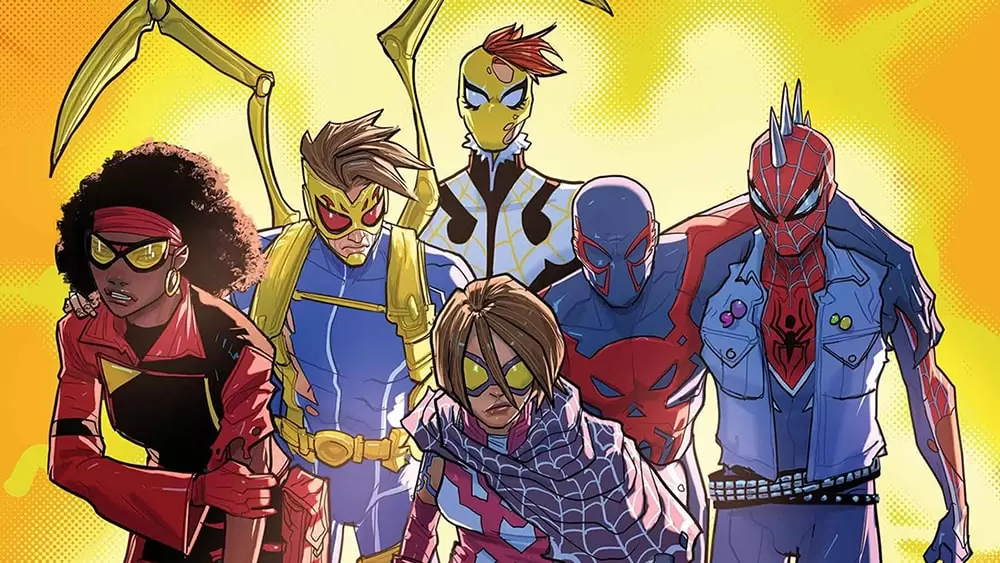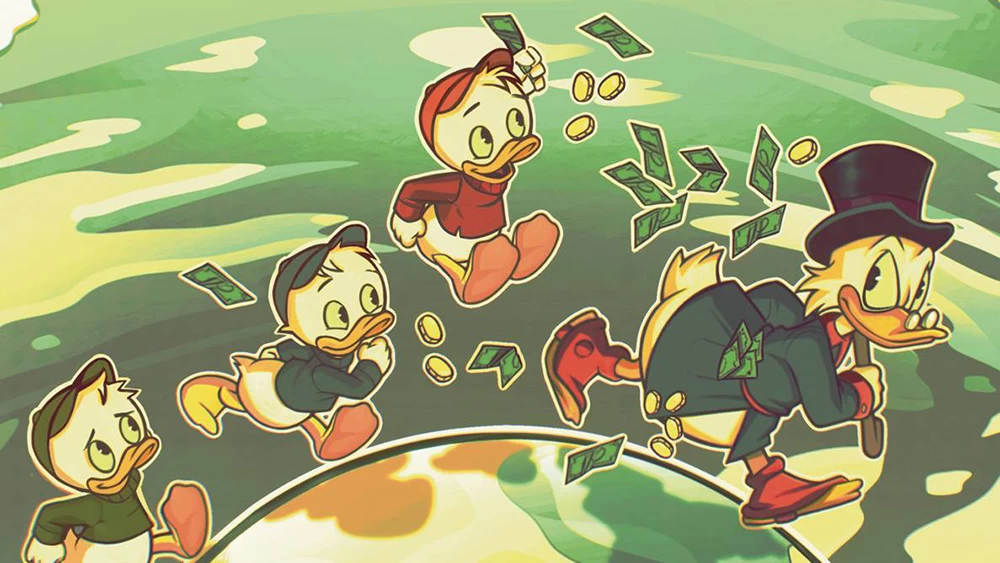I ended a recent post by noting that games can be used as markers of life. We can remember (hazily) the times in college when we played hack-n-slash D&D as a drinking game (and what ever happened to the people we were dating at the time?). But at other moments, our lives and world are sufficiently memorable. I hosted a game day on a recent Saturday, the 11th of September. We didn’t spend a lot of time talking about what that date meant, but we also couldn’t avoid it.
There’s not really a good transition after that topic, and yet we have to keep going. So I think the point here is that we bring the rest of our lives with us to the game table, and that the rest of the people around the game table—old friends or relative strangers—will bring a lot of their lives with them, too. Perhaps their grandmother just got arrested for shoplifting, or they had three tons of gravel delivered to their house due to a typo on an order form. Whatever’s going on, you, the host, need to keep things running smoothly, and I admit that I’ve not always been good about maintaining that smoothness. Still, a bit of roughness here and there shouldn’t grind your game day to a halt.

The recent Owl House Game Day is a pretty good example of how an event can go. One player showed up at the early start time, and I was glad that I had set out my Crokinole board. We spent some time flicking disks and chatting about life. I don’t want to brag about my astonishingly fast reflexes, but I assure you that if it weren’t for espresso-turboed muscle twitching I’d be wearing an eyepatch right now. I’m drinking rum in honor of that non-existent patch. Other players showed up over the next few hours, and we ended up with six altogether. Not a bad number. But part of my role during the event was to make introductions and to keep the conversational ball in the air (a volleyball, not football, metaphor) during slow points and between games. It’s wonderfully useful to have games to talk about, and that certainly helps to keep the conversation moving.
Like many other game days, once everyone was in place we played a lot of different titles over the course of the evening.
Chrononauts (an easy game to stop and re-start), Werewolf (on the iPad…an interesting experience), Forbidden Island (we died twice), and a late game of Bohnanza (without a single fart joke).
And I had an insight just before the rest of the guests wended their ways past the plants on the front porch and into the house: don’t explain all the games, give space to the people around you. Make sure that they get to play one of the games they brought, or at least get to explain a game that you own but they might have played more. I’m learning this lesson because I have a toddler in my life, and one of the ways to make her happy is to give her autonomy (or the illusion of autonomy—we’re very Orwellian, my wife and I, in cultivating this particular illusion). I’ve noticed that I, too, am happier when I get to make meaningful choices and when I contribute—again, meaningfully—in my community (and I’m thinking family, workplace, neighborhood, and so on). When gamers come over to play games at your house, remember that the issue at stake is not you and your house. The issue is fun. And games.
But do make sure have enough to eat and drink.
- Titan Comics for February 21st, 2018 - Feb 17, 2018
- The Gardeners and the Panda?: A Review of Takenoko - Jan 25, 2012
- You Made a Time Machine Out of a DeLorean? Back to the Future – The Card Game Reviewed - Jan 8, 2012









The biggest fun killer that I have found, is the cell phone. My current gaming group consists of my kids, and the teens in that category cannot be pried away from their phones for anything. Messaging while playing is the most annoying, for everyone. So I had to impose a rule that if they want to play, the phones have to be put away. Of course, they use every opportunity to defy me, as teens will do. We still generally have a good time, but going through the same fight all the time just gets so old.
I was hearing about a family that instituted a "phone basket" for teens that came over to socialize. My wife's instituting a similar policy in her classroom: if she catches anyone texting during class, all the phones go into a basket she has. So far, so good.
But it's not always so generational. I went to lunch with an older colleague who kept his Blackberry in his lap the whole time. He'd occasionally check out of the conversation to exchange messages with someone.
And now I'll just sigh deeply. My daughter's just under two years old, and I'm already imaging the future you're talking about, Elliott!
Game days are a great concept – there are a variety of 'games day' goals in my mind. One is to expose people to games they may not have tried out simply because they didn't know it existed or they wouldn't have tried it on their own because of number of player requirements or perhaps it was in a genre that didn't pique their interest. In either case I usually find that you will discover enjoyable games you would have not tried otherwise. If you live in a smaller community, the other goal of finding 'new gamers' becomes difficult. Advertising can be a challenge because non-gamers are not looking for 'games days'. So one of our hurdles is how to bring in new people. A good friend of mine and I recently took our wives to a board game marathon in Minneapolis. Neither were gamers before marrying us but have since become an active part of our gaming group. That said, exposing them to the gamer crowd in such numbers was a bit of a shock. My wife ended up playing Dominion with a group of Magic the Gathering card players and left with a horrible taste in her mouth. They chided her for her lack of shuffling skills and speed (a skill much needed in Dominion) and the speed at which they played left her hating the game and extremely disliking the experience. The morale to that story is if she would have been a gamer virgin, the experience would have most likely resulted in her never returning to such an event. After encouragement and playing with other games and players there, she relized that is was an isolated event. It is a harsh reminder though that in order to reach our goal for game day we need to make sure we gently guide newbies into the hobby. Heavy handed play and chiding is certainly not the way to increase our numbers. Perhaps a set of basic rules should be laid out – i.e. as per James' comment above, 'No cell phones or texting etc." may be a good idea. Another game I participated in involved a particular player who spent more time texting and staring at his cell phone than the game itself. One player suggested that he turn it off but the player wouldn't have any of it. I guess what I'm getting at is that we cannot assume that everyone's ettique (or lack thereof) is in occordance with what most would deem acceptable. Certainly these sorts of behaviors will deter that newbie from returning, and after all – isn't games day about having fun, increasing numbers, trying out new games and socializing? (BGG: InnsmouthMedic)
I think your idea of getting people to play one of the games they brought is an interesting one. I often bring games along when I go somewhere because I don't want there to be a point where there is nothing to play. But, I am quite happy to not play any of them if there are already enough games. I think that sometimes it can be intrusive to try get one of your games played because the host might have had a game plan, so to speak.
On a similar note, letting people explain games only works if people are comfortable doing so. Some people don't feel comfortable explaining the games – even the games they brought – so a "rules explainer" can be welcome and can dominate the game explanations with no ill will.
So… I think your thoughts there are highly subjective – sometimes its true and sometimes not.
Ballistic101: Thanks for the comments! Lots of different ways for a game day to go, to be sure. And as long as as we're looking to respond to the group dynamic, we'll have a good time. My suggestion is to pay attention to the people around you…game day becomes a kind of metagame, I guess.
Troy: I share your wife's pain. I never played M:tG, and my card skills suffer. I'm glad you were there for her. And you're absolutely right about "gently guiding."
Game Days can be fun, if a bit frustrating. I like to bring a few simple-to-learn and play games with varying degrees of concentration and competitiveness needed. Guillotine is my favorite ice-breaker as it's simple, fun, and a bit cut throat at times without being too heavy. Moving on to things like Ascension which is my new favorite 'mid level' game. Quick to learn the basics, lots of randomness interspersed with strategy as players figure out combos. The best thing about Game Day is getting people to learn and ramp up existing games and not just scaring them by trying to explain Race for the Galaxy or Dominion.
(came over from BGG, site looks good from what I've poked at so far)
I know that when I go to my FLGS' board game night I tend to bring at least one small game in case it gets to a point in the evening where I have a one or three people that don't feel like playing whatever we have available there so I can bust my game out and save the night. But generally speaking I have more fun trying other people's game, especially when they are games that are currently on my wishlist. I don't know if trying to play games people brought every time is the best solution, some people do bring games 'just in case'. As for at home, when I have people over I always make sure that fun is the priority. Some nights we just play something simple like scrabble or life instead of worrying about teaching rules to something complex. Sometimes its more about the social aspect than the fun the game itself brings.
Nuurgle: Welcome to The Gaming Gang! I'm glad you clicked over. One of my favorite light games to introduce people to is King Me! The simplicity of the rules makes that part of the discussion quick, but the way the game works is just unfamiliar enough that you can start to figure out how much further they might like to go. And I can see how it might have a similar feel to Guillotine.
Taerdin: The small side game is always a great idea. I recently received a crokinole board, so I'm leaving that set up in the corner for people who want a break from the heavy stuff. I'm lucky to have brought a pretty good group together, so if we're in the mood for more social games, we pull out Bohnanza or Carcassonne. Scrabble's a good choice. Sometimes, we just break out the Fluxx deck. As you say, it's really about having fun with friends.
And thanks to both of you for your comments!
I think consideration goes a long way in board gaming. When I organize an event, I try to leave the time open for others to comment on, to be flexible for peoples schedules. But that can be taken, as you can't expect those you invite to organize the game themselves. I find it works well to pick a day, and leave the start time open within a few hours.
Another thing I really appreciate is those who take the time to communicate they will not be attending, are planning to attend. Even if plans change at the last minute, it is a big help to get a phone call alerting us the fact we shouldn't be waiting on a player.
As for food and drinks, I generally try to provide something. It takes some work to discern what your group is interested in eating, and what they aren't. For example I find that providing 2 liter soda bottles results in little to no consumption, while soda cans generally do get consumed. Beer seems to vary quite a bit depending on who attends, from being quite popular, to staying untouched.
Clearly more research in these matters are required.
I am also nervous a bit about spilled drinks, and greasy fingers. I want my friends to be comfortable and enjoy themselves, but don't want to risk my games unnecessarily.
Frumpish: The variable start time is a great idea, and I agree that an RSVP is important, too. Together, you can develop a sense of who will be over and set aside some appropriate games. And whether or not you need to get out the folding table. Speaking of food, I always suggest "game-friendly snacks." Most people seem to get it. And I lay felt down over the table. The material lets us pick up cards easily (no bent or nicked ediges!) and keeps spills from moving too fast. Thanks for your comments!